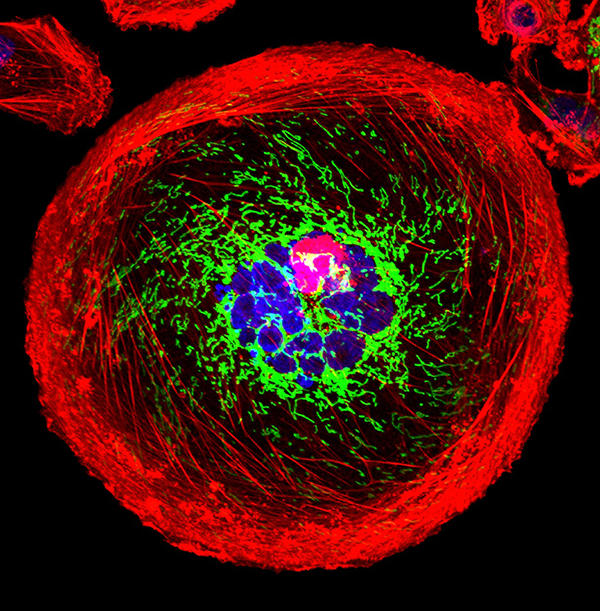
Test detects breast cancer in earliest stage
The new research results were presented at the 2019 NCRI Cancer Conference today by Daniyah Alfattani from National Cancer Research Institute (NCRI) at the University of Nottingham (UK). Alfattani used autoantibodies that are directed against tumour-associated antigens (TAAs) to diagnose breast cancer in early development stage. They have developed panels of TAAs known already to be associated with breast cancer to detect autoantibodies in the blood.
In a pilot study, Alfattani et al took blood samples from 90 breast cancer patients at diagnosis and matched them with samples taken from 90 healthy patients. Using a protein microarry that allowed rapid screening of autoantibodies against breast-cancer-specific 40 TAAs , and also 27 TAAs that were not known to be linked with the disease, they were able to detect cancer with what they call "reasonable accuracy".
Accuracy of the test improved in panels that contained more TAAs. A panel of nine antigens correctly identified cancer in 37% of cancer samples and no cancer in 79% of the controls. Because this is not accurate enough, Alfattani said: "We need to develop and further validate this test. However, these results are encouraging and indicate that it’s possible to detect a signal for early breast cancer. Once we have improved the accuracy of the test, then it opens the possibility of using a simple blood test to improve early detection of the disease."
The researchers have startet testing samples from 800 patients against a panel of nine TAAs, and they expect the accuracy of the test to improve with these larger numbers. If they has enough resources to push development of the test, the researchers estimate that, it might become available in the clinic in about four to five years.
A similar test for lung cancer is currently being tested in a randomised controlled trial in Scotland, involving 12,000 smokers. Participants who test positive for the autoantibodies are then followed up with a CT scan every two years in order to detect lung cancer in its early stages when it is easier to treat.
The group is also working on similar tests for pancreatic, colorectal and liver cancers. However, it might be limited to tumours with high mutation burden that consequently develop a lot of TAAs
Experts at the conference, however, warned not to overhype but to firstly validate and publish the research results. This February, German HeiScreen GmbH, a spin-out of the University of Heidelberg, claimed it had developed a test for eary breast cancer detection with a sensivity of 80% to 90%. The claims however turned out to be pure PR as the unpublished test results, which were exclusively announced to the press, seemed to deliver to many false-positive test results. In September, it turned out that even there wasn’t a prototype test available.
For five years, the public-private partnership CANCER-ID of the Innovative Medicines Initiative (IMI) have validated the best available methods to detect cancers with high mutational burden such as breast and lung cancers by liquid biopsy. Final results will be published after the end of the project, this December. According to the academic coordinator of the €20m project, Klaus Pantel of the University Medical Center Hamburg-Eppendorf, liquid biopsies pose a very difficult analytical challenge because we are looking for very rare events."



 adobe.stock.com - ipopba
adobe.stock.com - ipopba BioDlink
BioDlink